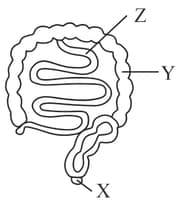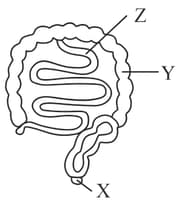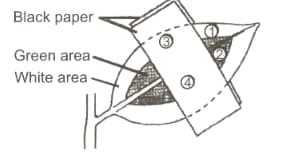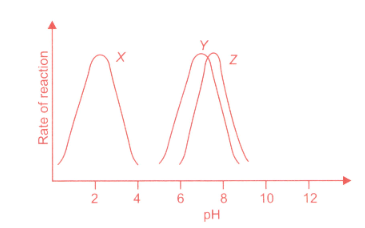Anil Ahlawat Solutions for Chapter: Nutrition in Plants and Animals, Exercise 1: EXERCISES
Anil Ahlawat Science Solutions for Exercise - Anil Ahlawat Solutions for Chapter: Nutrition in Plants and Animals, Exercise 1: EXERCISES
Attempt the practice questions on Chapter 1: Nutrition in Plants and Animals, Exercise 1: EXERCISES with hints and solutions to strengthen your understanding. NSO Science Olympiad Workbook Grade 7 solutions are prepared by Experienced Embibe Experts.
Questions from Anil Ahlawat Solutions for Chapter: Nutrition in Plants and Animals, Exercise 1: EXERCISES with Hints & Solutions
Most crops require a lot of nitrogen to synthesise the proteins. The bacterium Rhizobium helps some of the crops to get nitrogen. Which of the following statements is incorrect for Rhizobium?
Which enzymes are likely to act on the baked potatoes eaten by a man, starting from the mouth as they move down the alimentary canal?
The steps of the digestive process are listed below in a random order.
(i) Water and some salts from undigested food are absorbed.
(ii) Food is liquefied; breakdown of proteins begins.
(iii) Food is moistened; breakdown of starch begins.
(iv) Proteins, carbohydrates, and fats break down; nutrients are majorly absorbed into the bloodstream.
Select the option that gives the correct order of these events as food passes through the human digestive tract.
Refer to the given diagram showing a part of the human alimentary canal and answer the following questions. Which of the labelled structures removes most water from the undigested food?

Which of the following statement(s) is/are correct for the structure labelled as Z?

Which graph shows the effect of temperature on the rate of photosynthesis of the aquatic plants such as Elodea?
The given diagram shows a destarched, variegated leaf, partly covered by black paper. The plant is placed in bright light for several hours.

Four discs are then cut from the leaf in the positions shown and are tested for starch. Which disc(s) do/does not contain starch?
Refer to the given graph which shows the effect of pH on the activities of three enzymes X, Y and Z.

Which of the following are the possible locations in the alimentary canal of man where the three enzymes can be found?
| X | Y | Z | |
| (A) |
Small |
Mouth | Stomach |
| (B) | Mouth | Stomach | Small intestine |
| (C) | Stomach | Small intestine |
Mouth |
| (D) | Stomach | Mouth | Small intestine |
